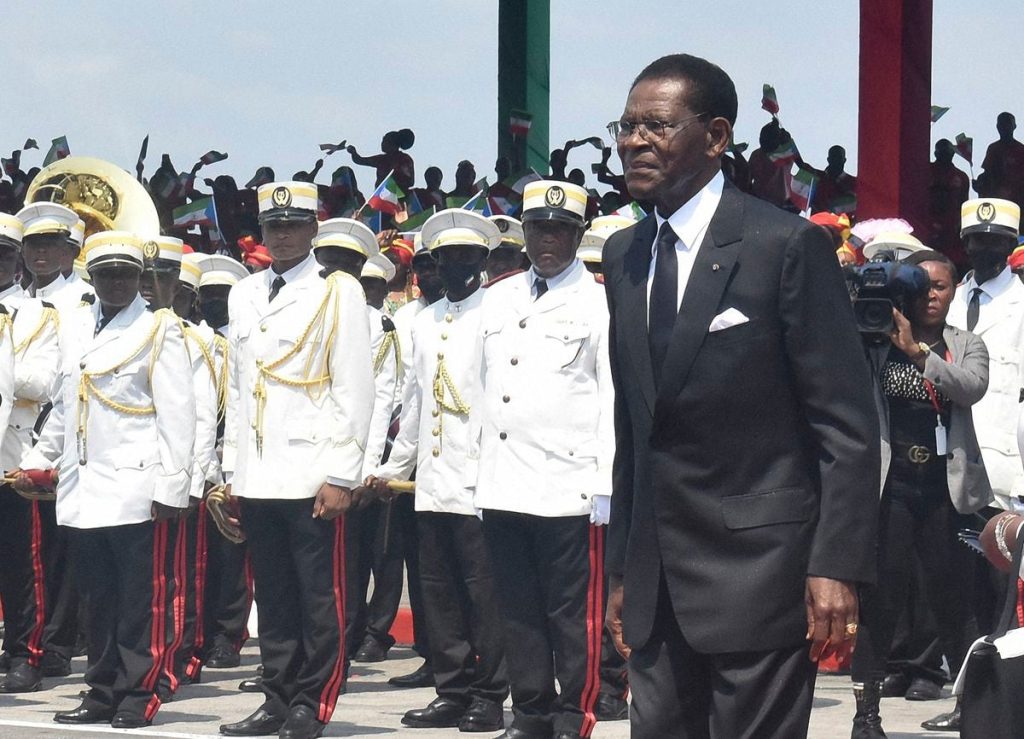The Penal Chamber of the National Court has dealt a new blow to judge Santiago Pedraz in the investigation against Carmelo Ovono Obiang, one of the sons of President Teodoro Obiang Nguema, for the kidnapping and torture of four Guinean opposition members living in Spain, one of whom died a year ago under unclear circumstances. The judges have accepted the appeal filed by the victims’ representatives against Pedraz’s decision to relinquish jurisdiction of the case to the courts of Equatorial Guinea. They pointed out that the judge does not have the authority to transfer jurisdiction to Equatorial Guinea, as this can only be done through an international treaty which Spain does not have with that country.
Pedraz had deemed a supposed investigation by the authorities of Equatorial Guinea against Obiang’s son and two high-ranking government officials as credible, and had decided to refer all the preliminary proceedings of the case to the Supreme Court of Justice of the former Spanish colony. The decision was challenged in appeal by the prosecutor and the families of the kidnapped individuals, two of whom are Spanish. This latest decision is the fourth setback for Judge Pedraz from the supervisory body of judges who oversee the work of investigating magistrates.
The judges repeatedly rejected Pedraz’s orders and decisions at each instance where the prosecutor and the victims’ representatives appealed. The most recent instance was the issuing of an international arrest warrant against the three individuals being investigated – Carmelo Ovono Obiang, the Minister of Interior, Nicolás Obama, and Isaac Nguema Endo, the Director of Security. These individuals are at the top of the Ministry of Interior of the former Spanish colony. Pedraz had previously refused to request Interpol for their location, arrest, and imprisonment, which the prosecutor and plaintiffs had been demanding for a year.
Pedraz has faced criticism for his actions in the case, including his decision to transfer jurisdiction to Equatorial Guinea and his handling of the investigation into the origin of funds amounting to 793,000 euros deposited by Carmelo Ovono Obiang into his account in Madrid. The judges ordered an investigation into the use and source of this money, suspecting it may have been used to fund the surveillance, kidnapping, and torture of the four opposition members. Pedraz, however, dismissed the allegations of money laundering and defended his decision not to pursue the investigation further.
In a controversial move, Pedraz had previously decided not to arrest Obiang’s son, who had been under secret investigation for two years for terrorism and crimes against humanity. Despite police surveillance and efforts to track him down, Carmelo Ovono Obiang fled Spain upon learning of the investigation against him. The judge has not provided a clear explanation for his sudden change in approach, causing discontent among the law enforcement officials working on the case. The defense of the three individuals under investigation is being represented by Javier Gómez Bermúdez, former judge in the National Court. The complex legal proceedings in this case are further complicated by the familial and political connections of the main suspect to the highest levels of power in Equatorial Guinea.


